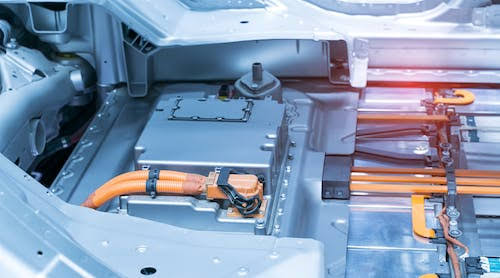In the industry that produces batteries for electric vehicles (EVs), Morocco aspires to take the lead on a global scale. The nation’s most recent action is the result of a recently announced collaboration between the Chinese battery component maker CNGR Advanced Material Co. and the Moroccan investment firm Al Mada.
For the purpose of establishing a base for industrial EV battery production in Morocco, the two businesses will jointly invest more than $2 billion. Morocco is the ideal location for producing the lithium ferrophosphate (LFP) cells that are increasingly employed in electric vehicles due to its enormous phosphate supplies and closeness to Europe’s expanding EV markets.
The joint venture will build factories that will produce cathodes, active materials, precursors for batteries, and recycling capabilities. Initial manufacturing is planned to begin in 2025, with an annual production capacity of more than one million EVs.
This partnership increases Morocco’s appeal as a key global hub for EV batteries. The government had previously discussed a potential $6.3 billion facility with the Chinese battery industry behemoth Gotion High Tech. Although not yet finalised, it indicates a plan to increase production.
While securing raw materials like cobalt and phosphates, Morocco makes use of its existing knowledge in the automotive and renewable energy sectors. With factories from Renault, Stellantis, and other companies, Africa’s leadership is cemented by its 700,000 car capacity. Citroen, the market leader in EVs, already produces 50,000 of them locally.
The nation is perfectly positioned to export goods to both Europe and the US. In 2022, its automotive exports brought in over $11 billion, an increase of 33% over the previous year. Due to the sector’s substantial contribution to international trade, Morocco is encouraged to improve its EV capabilities.
However, the action also advances Morocco’s energy and decarbonization ambitions. By 2030, the nation wants to use 52% renewable energy, which calls for an increase in electrified transportation. Both environmental and economic goals are served by creating a strong domestic EV supply chain.
Morocco wants to play a key role in the world’s battery production networks due to the growing local and international demand for electric vehicles. Its collaborations scale cutting-edge technologies while maximising current advantages.
Morocco shows that it is prepared to take the lead in the global transition to electric mobility by proactively facilitating large-scale investments. The benefits will extend beyond its borders thanks to its dedication to fostering a sustainable EV industry.

